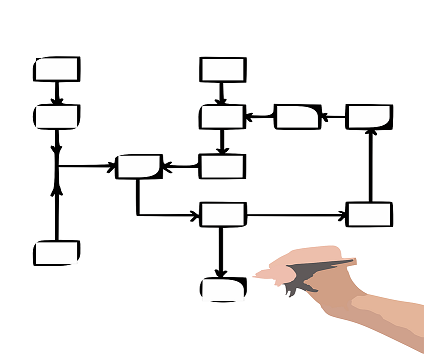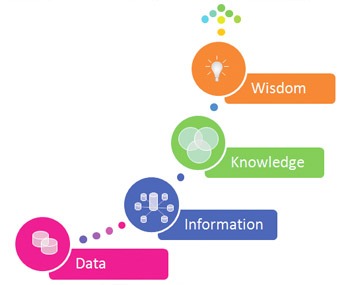Posted by
Joseph Smith
on Jul 28, 2016 8:30:00 AM
When it comes to security and PHI for hospitals, it’s best to keep out of the news headlines…
In talking with our healthcare partners these days, a lot of our conversations tend to move toward security, and more specifically, securing PHI. With the recent cyber-attacks on healthcare organizations making headlines and resulting in complete shutdowns of hospital IT systems, you can understand how this is a priority.
Read More
Posted by
Chantel Soumis
on Jul 27, 2016 9:00:00 AM
What is better? Manual or automatic? How do they work? Which one to choose? Why?
No, this isn’t an article about buying cars. Although it may sound like it, I'm actually talking about clinical extraction software. There are some striking parallels when comparing car purchases and data extraction software purchases.
Aside from the fact that modern cars are essentially computers on wheels—on average containing thirty computers and millions of lines of code—buying a car is similar to the purchasing process of choosing an extraction software in a more practical way.
Read More
Posted by
Greg Gies
on Jul 26, 2016 8:00:00 AM
The U.S. Department of Health and Human Services defines Quality Improvement (QI) as systematic and continuous actions that lead to measurable improvement in health care services and the health status of targeted patient groups.
While procedures and systems are necessary to ensure continuity, equally important is the measurement of actions and patient health status, which require data not only to establish a baseline but also to continuously track, monitor and measure progress toward QI goals.
Read More
Posted by
David Rasmussen
on Jul 21, 2016 1:30:00 PM
The British are coming! The British are coming!
This isn't a blog about the Battles of Lexington and Concord with Paul Revere’s famous quote… but this is equally as important as that fateful night.
The British, Chinese, Iranians, Russians, eastern Europeans—and probably the US government too—are all coming to a database near you. They are systematically gathering data about all of us. No bit of data is too small because it could be a critical piece of the puzzle that connects all of the seemingly unimportant information they’ve already collected on you. Imagine creating a digital picture of you, one pixel at a time. Get it? No wait, they’ve got it.
Read More
Posted by
Dr. John Daller, MD, PhD, FACS
on Jul 19, 2016 8:00:00 AM
How do your objective measures and process improvement plans fit together in your Quality Assessment and Process Improvement Program (QAPI)? Are they all individual efforts, kept in binders and not communicated to the various stakeholders? Or is your QAPI program a vibrant living entity in which all stakeholders are actively engaged? One of the key items that the Centers for Medicare and Medicaid Services looks for is a clear, cohesive and implemented plan that is reflected in your QAPI policy and it is a lack of this that is frequently cited as a deficiency during a CMS audit.
Read More
Posted by
Joseph Smith
on Jul 14, 2016 8:00:00 AM
"We just need to get those darn labs entered!"
I had an interesting conversation with a transplant director at the UNOS Transplant Management Forum. She said, "we have a great transplant management system, now we just need to get those darn labs entered!"
Well, to be honest the actual word was not darn. But a bit harsher. She was frustrated. She was referring to the high volume of paper-based labs that come in each day from external sources. Due to the manual entry required to get these labs entered, they were experiencing a significant backlog and critical lab data was being delayed. As you can imagine, this was causing quite the stir in the department but there was nothing anyone could do!
Read More
Posted by
Dr. John Daller, MD, PhD, FACS
on Jul 12, 2016 8:00:00 AM
Once you have established and tracked your objective measures and have determined that an improvement project is in order, you need to make a decision as to which of the available methods and tools that you will use to perform your project. While the tendency will be to rush to begin the project, keep calm and chose the right tool for the right job.
All of the available methods and tools are a means to the same end, namely improvement. However, depending upon the method and tool chosen, different results will be achieved in different timeframes. One consideration in your choice is whether you are trying to achieve improvement in an area of clinical variation or process variation. The over-riding goal is to use the best knowledge available today to improve performance through the elimination of special cause(s) and common cause(s) of variation in processes and then ensure that performance is sustained over time.
Read More
Posted by
Chantel Soumis
on Jul 7, 2016 8:30:00 AM
“You can match a blood transfusion to a blood type – that was an important discovery. What if matching a cancer cure to our genetic code was just as easy, just as standard? What if figuring out the right dose of medicine was as simple as taking our temperature?” –President Obama, January 30, 2015
There are six key principles of the federal Precision Medicine Initiative (PMI). PMI was a federal initiative announced by President Obama in 2015 and was incorporated into the 2016 budget. The mission statement for PMI is “to enable a new era of medicine through research, technology, and policies that empower patients, researchers, and providers to work together toward development of individualized care.” The White House
Read More
Posted by
Dr. John Daller, MD, PhD, FACS
on Jul 5, 2016 10:00:00 AM
Our previous blogs on Quality Assessment and Process Improvement (QAPI) in this series have focused on designing objective measures and using those to monitor key aspects of our transplant programs. Today, we want to discuss what to do with those measures and how to translate them into successful process improvement projects.
Before we begin, I wanted to put to rest one common misconception; namely that the Center for Medicare and Medicaid Services (CMS) requires programs to have an improvement project for every objective measure. CMS does not require each objective measure to have a process improvement project associated with it. You should have a project for each phase of transplant and your living donor program that reflects both a process and outcome measure. However, it is appropriate for you to track your improvement projects with objective measures.
Read More
Posted by
Dr. John Daller, MD, PhD, FACS
on Jun 28, 2016 1:30:00 PM
In our last blog, we discussed the development of objective measures in your Quality Assessment and Process Improvement (QAPI) program and using a SMART approach as described by Doran in Management Review in 1981. Today, we are going to focus on some additional considerations and discuss how to manage these measures so as to yield demonstrable and actionable improvement through the use of process improvement projects.
Read More









